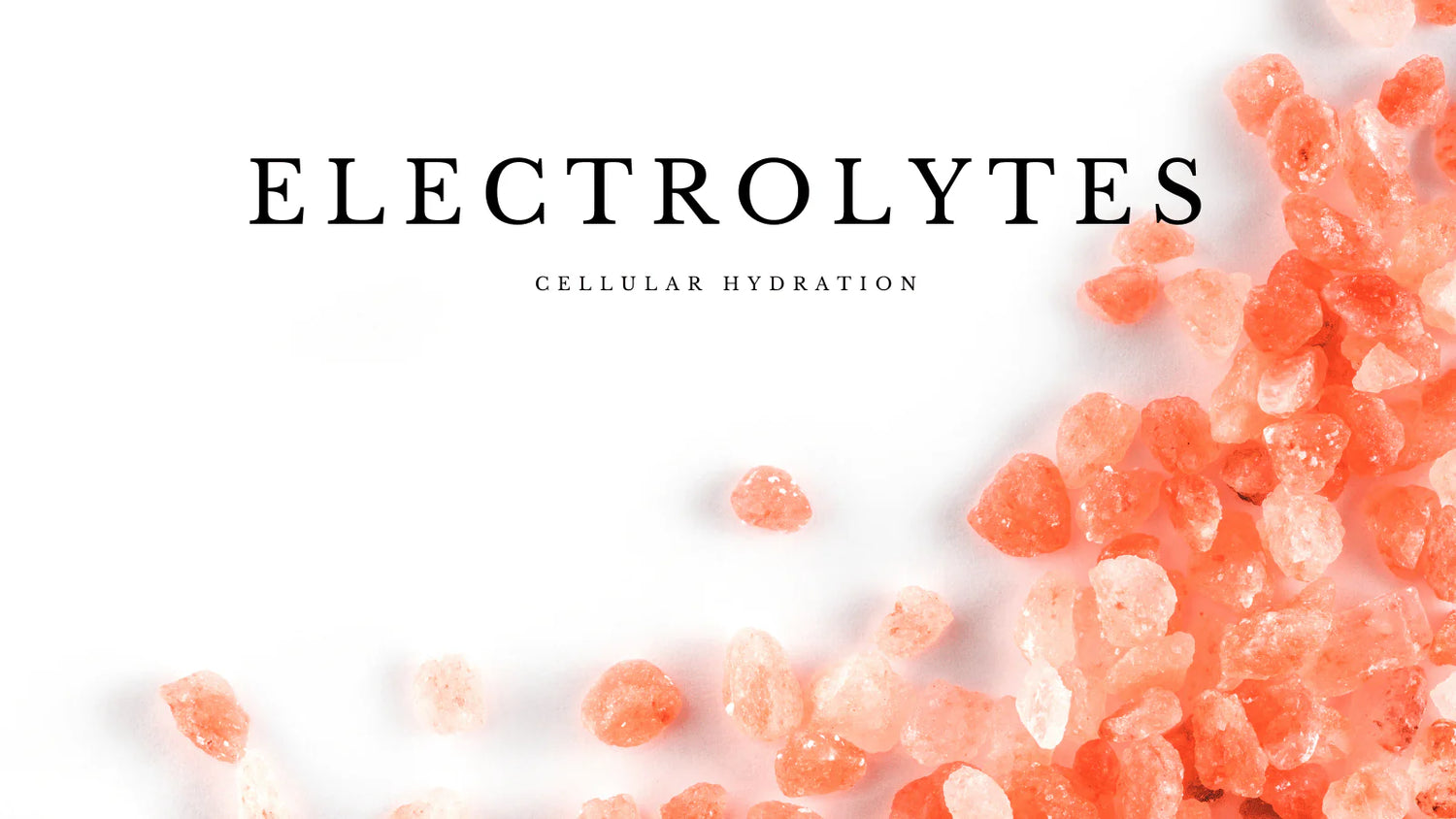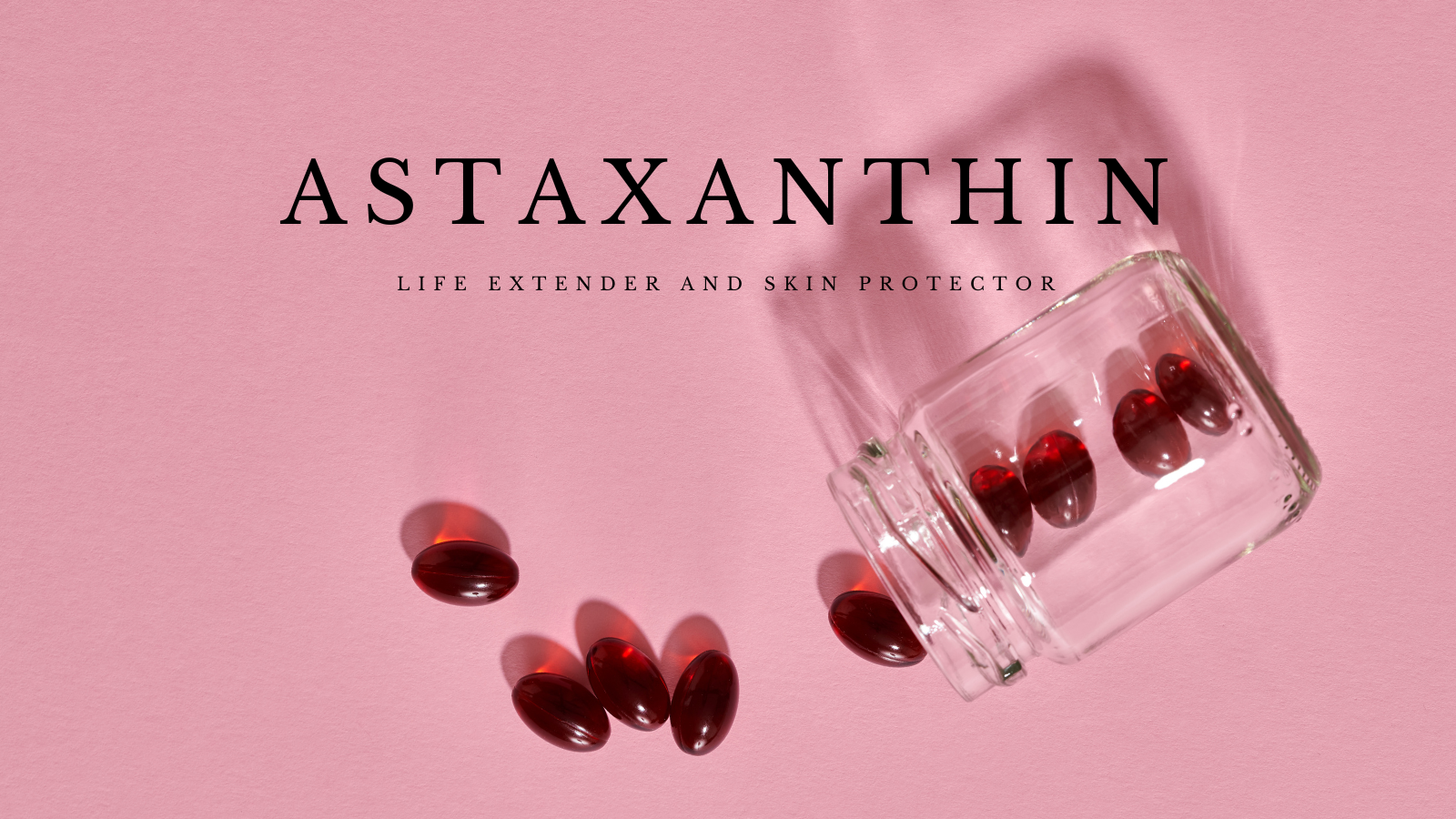Our bodies run on a balance of nutrients and minerals that interact with each other, playing vital roles in systems and processes that keep us alive and healthy.
Electrolytes are one of the key components in many of these systems and processes. They interact with our cells, and affect brain function, nerve function, muscle function, and hormone function.
Let’s dive into what electrolytes are, how they work, and how to make sure you have the right balance of them in your cells.
What are Electrolytes?
Electrolytes are minerals that contain a positive or negative charge. These minerals dissolve easily in water because their positive or negative charges are attracted to the positive charges of Hydrogen in the water, or the negative charges of Oxygen in the water, thus creating a weak bond between the elements. Once this bond is made, the mineral becomes an ion, and can interact with your cells.
If you love chemistry, you are probably aware that the term electrolyte is the medical term for an ion.
The primary essential elements that are electrolytes are:
- Sodium
- Potassium
- Calcium
- Magnesium
- Chloride
- Phosphate
- Bicarbonate
- Hydrogen
- Click here for a detailed breakdown of what each electrolyte does, normal blood levels and more
These electrolytes, now bonded with water, will make their way easily to cells and will either deposit the electrolyte inside the cell or around the outside of the cell. To maintain proper hydration of cells, it is important that you have a balance of water inside and outside of cells. The best electrolyte supplements will take this into consideration.
What electrolytes do is maintain that balance. If you have too many electrolytes that sit outside of a cell – some of these include Sodium, Chloride, Calcium, and Bicarbonate – water will be drawn out of the cell, causing it to dehydrate. Over-hydration of the cell can occur when water is drawn into the cell by an overabundance of electrolytes that sit inside the cell such as Potassium, Magnesium, and Phosphate, which will cause the cell to swell up.
You may have heard or seen the word isotonic on sports drinks or powders – it means a balance in the concentration of ions inside and outside the cell.
(This means that having just salt won’t cut it. I will be the first to admit guilt to thinking it will. Confessions are accepted in the comment section below.)
Check the video at the end for a detailed, chemistry-oriented breakdown of how electrolytes interact with cells.
So What Do Electrolytes Do For The Body?
There is a complex web of interactions between electrolytes and our body's organs and cells. The three main cell types that need electrolytes for function are nerve cells, endocrine cells, and muscular cells. Electrolytes facilitate critical cellular functions in these cells such as nerve impulses, hormone release, and muscle contractions.
Electrolytes play a critical role in brain function, particularly in neurons (the name for brain cells), which require electrolytes to communicate effectively. A lack of electrolytes can have profound effects on the brain, influencing cognitive functions, mood, causing dizziness, and affecting overall mental health. If severe enough, electrolyte imbalance in the brain can result in seizures and brain damage or death.
A lack of electrolytes in muscular cells usually results in muscular weakness, cramps, and extended periods of muscle recovery after strenuous activity.
In the endocrine cells, a lack of electrolytes can cause improper hormone release or function which can result in mood swings, impact growth and development, affect your metabolism, and can also have a detrimental impact on organ function. One example is low sodium causing resistance to the hormone insulin in your body, or low sodium spiking adrenaline.
A bonus: for those who read the glycine blog, evidence suggests that it can help in the treatment of shock. Well, turns out that electrolytes are also important components in the treatment of hemorrhagic shock. So always keep a tourniquet on you, a pack of Sol Supps Glycine, and a packet of Sol Salts - you might just save someone's life!
Natural Sources vs. Man-Made Electrolyte Drinks
While electrolyte drinks and powders are often marketed as a quick fix, they are usually jam pack full of fillers, artificial flavours and dyes, and have way too much processed sugar (often in the form of high-fructose corn syrup).

Fruit is a natural alternative to processed sports drinks
Heavily processed electrolyte drinks and powders can contribute to various health issues, including obesity and gout while sometimes even delivering electrolytes at levels far below the required amount. One of the health issues possibly associated with red chemical dye 40 (a petrochemical - that should be the first red flag) includes intestinal inflammation. This dye is in popular sports drinks that are well known.
Natural sources like fruits, vegetables, and nuts provide a spectrum of essential minerals without the added junk found in many commercial electrolyte drinks. Here are the top five natural sources of electrolytes, ranked from highest to lowest concentration:
- Coconut water – potassium, sodium, magnesium, calcium
- Bananas – magnesium, phosphate, potassium
- Oranges – potassium, magnesium, calcium
- Spinach – calcium, magnesium
- Almonds – calcium, magnesium, potassium
During WWII British and Japanese patients were given coconut water as an alternative to IV fluid when supplies ran out. In another case, during the peacekeeping operations on the Solomon Islands, the same technique was used on a patient when medics ran out of saline solution. This is due to its incredible spread of electrolytes. However, coconut water is not a replacement to water, but rather a great companion.
How We Lose Electrolytes, and When To Take Electrolytes
Just as we put water and electrolytes in our bodies, they also make their way out through important processes.
The main causes of electrolyte loss are:
- Sweating
- Urination
- Vomiting
- Diarrhea
Understanding when and how we lose electrolytes is key to maintaining balance. Sweating, urination, and even breathing contribute to electrolyte loss, making it important to keep eating a balanced diet, and supplementing when you need.
An appropriate time to use supplements is during intense physical activities and in hot environments. Electrolyte-containing foods and clean supplements become essential during these times to prevent cell dehydration, allowing for full, unimpeded body function.
If you lead an active lifestyle, supplementing electrolytes can be an appropriate way to keep your body hydrated and fuelled. Just make sure to keep the balance of electrolytes, and don't go over the top with it.
If you are ill and end up vomiting or having diarrhea for extended periods, it is incredibly important to maintain an electrolyte intake to replenish the large amounts that are lost. While salt is not the perfect electrolyte by itself, a bit of sea salt or Himalayan salt in water is a very easy and temporary solution for vomiting and diarrhea as they are readily available in most houses and the solution is easy to make.
A Healthy Electrolyte Supplement
Seeing the excess sugar and use of harmful colors, improper electrolyte balances in popular sports drinks and electrolyte powders, we designed an all-natural alternative, with absolutely no additives of any sort and a complete balance of intra and extra-cellular hydration.
Sourced from an Australian lake and the Dead Sea, our electrolyte salts include sodium, potassium, and magnesium, promoting a good balance of electrolytes inside and outside the cell for full hydration, making Sol Salts one of the best electrolyte supplements.
There are no artificial ingredients, fillers, preservatives, etc. Just pure electrolytes in a dissolvable solution. Add a few pinches to your water for the gym, a hike, or a sauna session and you will have the perfect hydration mixture.
Importance of Adequate Electrolyte Levels
Electrolytes support hydration and nerve function, regulate blood pressure, and enhance muscle function, ensuring your body operates at its peak. Additionally, they play a significant role in mental health, contributing to improved focus, mood, and overall cognitive function.
The realm of electrolytes goes far beyond the often unhealthy sports drinks we see on shelves. Electrolytes are foundational to our well-being. Choosing wisely, understanding our body's needs, and incorporating natural sources like fruits and nuts as well as healthy alternatives like Sol Salts can transform the way we nourish ourselves from within.
Check out the video below for a detailed but excellently explained breakdown on electrolytes and how they work.




Leave a comment
All comments are moderated before being published.
This site is protected by hCaptcha and the hCaptcha Privacy Policy and Terms of Service apply.